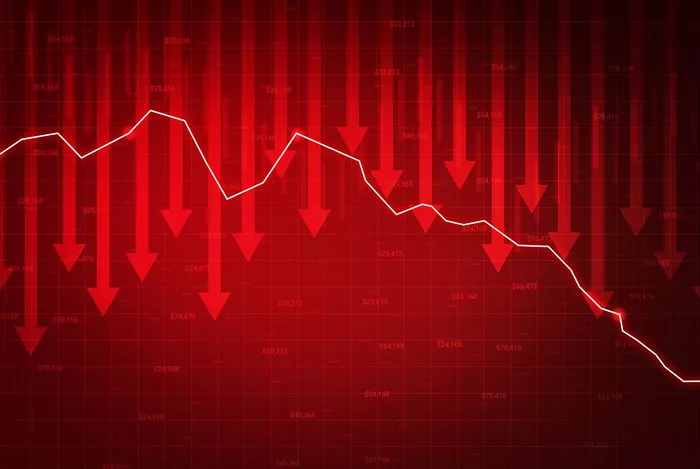The stock market is an ever-changing landscape, influenced by a wide range of factors that make predicting its future movements a challenging task. Investors often wonder when stocks will go back up after a period of decline, and there is no simple answer to this question. While it is difficult to predict with certainty, understanding the factors that drive stock prices can help provide some clarity on when the market may begin to rise again.
In this article, we will explore the various factors that affect stock prices, how market cycles work, and the indicators that investors look for when trying to predict stock price movements. By understanding these elements, investors can make informed decisions about when to enter or exit the market and what to expect in the future.
Understanding Stock Market Movements
Before we dive into predictions, it is important to understand how stock prices move and what drives their fluctuations. Stock prices are influenced by a wide range of factors, both external and internal, including:
Economic Indicators
The performance of the broader economy is one of the most significant drivers of stock prices. Key economic indicators such as Gross Domestic Product (GDP), inflation rates, and unemployment data play a crucial role in shaping market sentiment. For instance, a strong GDP report may signal economic growth, leading to higher corporate profits and, in turn, rising stock prices.
Corporate Earnings
Another key factor that drives stock prices is corporate earnings. Companies that report strong earnings growth tend to see their stock prices rise, while those with disappointing earnings reports may experience a decline. Investors closely monitor quarterly earnings reports to gauge the health of the companies they invest in.
Market Sentiment and Psychology
Market sentiment, driven by investor psychology, can have a powerful impact on stock prices. Fear and greed often dictate market movements, with investors either buying in anticipation of higher prices or selling in a panic during times of uncertainty. Stock prices may rise or fall based on how investors feel about the future, which can sometimes be detached from the underlying fundamentals.
Interest Rates
Interest rates, set by central banks such as the Federal Reserve in the U.S., play a critical role in stock market movements. When interest rates are low, borrowing becomes cheaper, encouraging consumer spending and business investment, which can boost corporate profits and push stock prices higher. Conversely, rising interest rates can have the opposite effect by increasing borrowing costs and reducing consumer spending, leading to lower stock prices.
Geopolitical Events and Global Factors
Geopolitical events such as wars, trade disputes, and political instability can significantly affect stock prices. These events introduce uncertainty, which can lead to market sell-offs as investors seek to minimize risk. Additionally, global economic factors, such as fluctuations in oil prices or changes in international trade policies, can influence stock markets worldwide.
The Nature of Market Cycles
The stock market operates in cycles, with periods of growth (bull markets) and decline (bear markets). Understanding these cycles is key to answering the question of when stocks will go back up.
Bull Markets
A bull market refers to a period of sustained upward movement in stock prices. During a bull market, investor confidence is high, and there is optimism about future growth. Stock prices generally rise, and the economy tends to expand. Bull markets can last for months or even years, as seen during the longest bull market in history, which lasted from 2009 to 2020.
Bear Markets
In contrast, a bear market is a period where stock prices decline by 20% or more from recent highs. Bear markets can be triggered by a variety of factors, including economic recessions, corporate earnings disappointments, or external shocks such as natural disasters or geopolitical events. During bear markets, investor sentiment tends to be negative, and fear often prevails over optimism.
Market Corrections
A market correction is a short-term decline of 10% or more in stock prices. Corrections are a normal part of market cycles and often provide buying opportunities for investors. While corrections may lead to temporary losses, they are typically followed by periods of recovery and growth.
The Role of Recovery
Recovery from a bear market or correction takes time. Historically, stocks tend to recover after periods of decline, but the timing and strength of the recovery can vary. Some bear markets are followed by rapid recoveries, while others may take years to regain lost ground. Understanding the stages of market recovery can help investors determine when to expect stocks to go back up.
Factors That Could Signal a Market Recovery
While predicting the exact timing of a market recovery is challenging, certain factors can signal that stocks may be poised to rise again. These include:
Improved Economic Data
Strong economic data is often one of the first signs that a market recovery is on the horizon. Positive indicators such as rising GDP growth, low unemployment, and stable inflation rates can indicate that the economy is strengthening, which may lead to a rise in corporate earnings and an eventual increase in stock prices.
Corporate Earnings Growth
As mentioned earlier, corporate earnings are a critical driver of stock prices. If companies begin reporting strong earnings growth, it can signal that the economy is improving and that businesses are doing well. This, in turn, can boost investor confidence and lead to higher stock prices.
Stabilizing Interest Rates
When central banks begin to signal that interest rates are stabilizing or being cut, it can be a positive sign for the stock market. Lower interest rates can help reduce borrowing costs for businesses and consumers, leading to increased spending and investment. This can support corporate profits and encourage investors to buy stocks.
Market Sentiment Shifts
Investor sentiment plays a crucial role in market movements. If negative sentiment begins to shift toward optimism, it can indicate that a recovery is underway. For example, if investors begin to view the market as undervalued and start buying stocks, it can create upward momentum that leads to higher stock prices.
External Factors Stabilize
Global and geopolitical factors can also impact stock prices. If concerns such as trade wars, political instability, or international conflicts begin to ease, it can help stabilize the market and pave the way for a recovery. Reduced uncertainty can encourage investors to take on more risk, leading to higher stock prices.
How to Prepare for a Market Recovery
As an investor, preparing for a market recovery involves adopting a strategic approach that balances risk and opportunity. Here are some strategies that can help you navigate the market and position yourself for a potential recovery:
Diversification
Diversification is one of the most effective ways to manage risk during periods of market uncertainty. By spreading your investments across different asset classes, industries, and geographical regions, you can reduce the impact of a downturn in any one area and increase your chances of benefiting from a recovery.
Dollar-Cost Averaging
Dollar-cost averaging is a strategy where you invest a fixed amount of money at regular intervals, regardless of the stock price. This approach can help smooth out the impact of market volatility and reduce the risk of buying at a market peak. By continuing to invest consistently, you can take advantage of lower prices during a market downturn and position yourself for future growth.
Stay Informed
Keeping track of economic indicators, corporate earnings reports, and market sentiment can help you stay informed about potential recovery signs. By staying updated on the latest news and trends, you can make more informed decisions about when to buy or sell stocks.
Avoid Panic Selling
During periods of market decline, it can be tempting to sell stocks in a panic. However, selling during a downturn often locks in losses and may prevent you from benefiting when the market eventually recovers. Maintaining a long-term perspective and staying focused on your investment goals can help you avoid making emotional decisions during times of volatility.
Conclusion
The question of when stocks will go back up is a complex one, as it depends on a variety of factors, including economic conditions, corporate performance, and market sentiment. While it is difficult to predict the exact timing of a recovery, understanding the underlying drivers of stock prices can help investors make informed decisions.
Market cycles, including bull markets, bear markets, and corrections, are a natural part of the investing landscape. While bear markets and corrections can be unsettling, history shows that stocks tend to recover over time. By paying attention to key indicators, managing risk through diversification, and adopting a long-term perspective, investors can position themselves to take advantage of market recoveries when they occur.
In the end, patience, strategy, and staying informed are key components of successful investing, especially during periods of market decline.
Related topics:

































